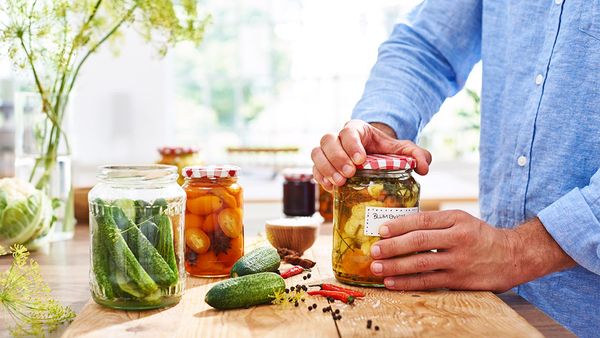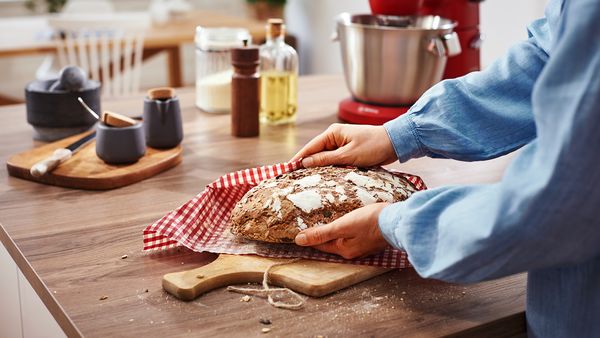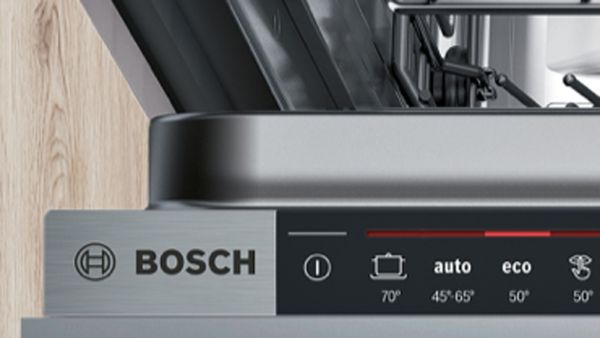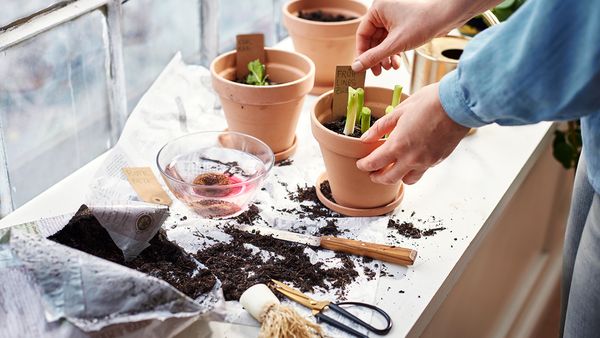Check out our 6 tips and tricks to make your kitchen more sustainable.

1.Shopping more sustainably.
If you want to ensure more sustainability in your kitchen, you can start with shopping. Record what you want to cook in a detailed weekly schedule and buy the products you need. Not only do you save time and money, but you also avoid buying superfluous products that might end up in the trash.

2.Reduce packaging waste.
The organic cucumber wrapped in foil is the best example of the unnecessary use of plastic. In the meantime, many supermarkets and producers are switching to the labeling of organic food using laser technology. Packaging is also slowly but surely becoming more environmentally friendly. Nevertheless, the amount of packaging waste that we produce every day is enormous. However, there are ways and means you can personally produce less plastic waste and ensure more sustainability in your kitchen:
• Reusable instead of disposable
• Buying unpackaged food
• Bring your own containers

3. Environmentally friendly storage and cleaning.
The following applies not only when shopping and transporting home: Avoid single-use items. Aluminum and cling film, kitchen roll or baking paper are usually only used once and then end up in the bin. Reusable options that are already available for every product are better for the environment and your wallet.
Instead of aluminum and cling film, you can also use beeswax wraps when packing bread, cheese, vegetables or fruit. These can be used over and over again, are 100 percent biodegradable and have an antibacterial effect. If you attach particular importance to sustainability in your kitchen, you can also make the towels yourself from scraps of fabric and beeswax pellets.
As a replacement for kitchen rolls, conventional cleaning rags and sponges are of course suitable for cleaning operations. However, there are also reusable kitchen towels that can be torn off. These are usually made of bamboo and can easily be put in the washing machine. After tearing off and the first wash, the tissues can be stored in a tissue box, for example, and pulled out if necessary - hygienic and decorative!
When it comes to cleaning agents, especially in the kitchen, there is no need for environmentally harmful cleaners from the supermarket. Simple home remedies like vinegar, soda, baking soda, and citric acid are just as good at fighting lime and fat.

4. Saving electricity in the kitchen.
The tip of not leaving the lights on unnecessarily is probably not new to you. But there are hidden power guzzlers, especially in the kitchen.
You can save a lot of energy in cooking. For example, electricity consumption is almost 300 percent higher if you cook without a lid on the pot or pan. The pans and pots should also be placed on the appropriate hotplates so that no heat is lost. In order to conserve energy and vitamins, you can often turn down the heat supply. Not only when cooking on the stove, but also when cooking in the oven, a lot of heat can be lost if you open the oven door to check the food.

5.Sustainability and water saving in one wash.
A lot of water disappears down the drain when washing dishes. Even if you put water in the sink and wash your dishes in it, rinsing with clear water and frequent water changes are necessary so that hygienic results can be achieved.
A helper who can support you in your sustainability endeavors is a properly loaded dishwasher. Correctly loaded is the magic formula here: because if the dishwasher is only half or incorrectly loaded, this can mean additional rinsing, or it works with many models quite simply to waste of water from not enough dishes.
6.Waste separation for better recycling.
It will be some time before plastic packaging completely disappears from stores. However, so that the individual materials can be recycled in the best possible way, it is important that the waste is properly separated: glass in the waste glass container, returnable bottles in the machines, paper, organic waste and residual waste in the respective bins and plastic in the yellow sack or the appropriate bin. What is a bit tedious at times, however, pays off on the whole.

